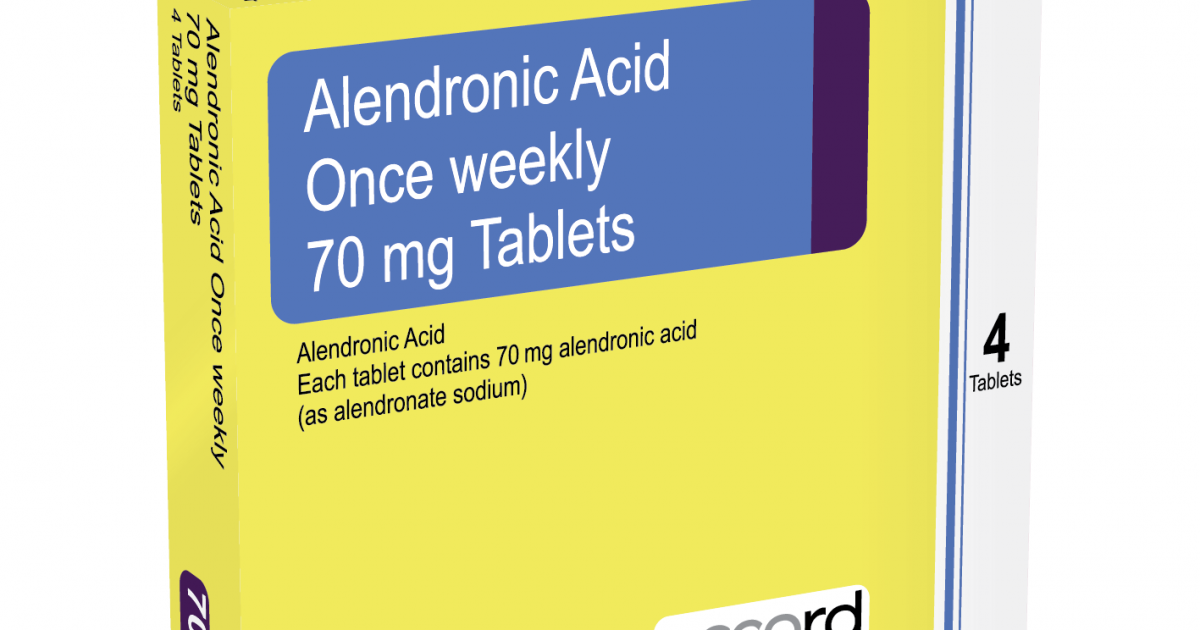I responded to a query today from a nursing home regarding an overdose of Alendronic acid 70mg Tablets that had been prescribed as ‘Take ONE tablet each week’. A carer at the nursing home gave the patient the product on Monday and another carer gave the same to the gentleman today, Wednesday. The nursing home manager contacted me whist in clinic to ask whether the patient would be ok and what, if anything, to look out for.
Managing an Alendronic acid overdose requires a prompt, systematic and supportive approach to minimise complications and ensure patient safety. Although overdose cases of this drug are relatively rare, the potential for significant gastrointestinal irritation and systemic disturbances calls for an evidence‐based management plan.
Here, I outline the approach taken to ensure patient safety:
Initial Assessment and History Taking
The cornerstone of the management of a case like this is a detailed clinical assessment. This involves promptly identifying the time and amount of Alendronic acid ingested and thoroughly assessing the patient for symptoms (i.e. over the telephone with the staff member in this case). Overdose presentations can include gastrointestinal disturbances (i.e. oesophageal irritation, dysphagia or gastritis), signs of central nervous system depression, respiratory compromise and metabolic imbalances like hypocalcaemia or hypophosphatemia. The rapid evaluation enabled me to estimate the risk of systemic absorption, define the urgency of decontamination and determine appropriate supportive measures.
Decontamination and Supportive Measures
If the ingestion is reported within an hour, early decontamination is possible. The use of gastric lavage may be considered, but it must be balanced against the risk of provoking further oesophageal irritation. Activated charcoal could be administered to bind residual Alendronic acid in the gastrointestinal tract, thereby minimising its absorption. It is essential to note that inducing vomiting is not recommended, as this may exacerbate oesophageal damage. Instead, keeping the patient upright helps prevent further oesophageal exposure to the corrosive effects of the drug. Importantly, asking the patient to drink milk soon after ingestion is thought to be beneficial because the calcium and other constituents in milk can bind the bisphosphonate, reducing its bioavailability and systemic toxicity. This is the step that I recommended when talking to the nursing home staff member, as I knew it would be both safe and effective.
Monitoring and Follow-up Care
I subsequently informed the nursing home that after the drink of milk, the patient should be carefully observed. Continuous monitoring would include patient response alongside patient thoughts and feelings on any adverse effects felt. A more in depth clinical management plan would revolve around frequent assessment of vital signs, repeated laboratory investigations to track calcium, phosphorus and renal function tests. Further supportive measures would include intravenous fluids, antiemetics, or other agents might be necessary to stabilise the patient and manage complications effectively; this would likely be at the extreme and was not applicable in this case.
Enhance Your Clinical Skills with Expert Training
Given the intricacies of managing an Alendronic acid overdose, healthcare professionals and caregivers can benefit greatly from further education on this topic. At www.pharmascholar.co.uk we offer comprehensive online teaching sessions that delve into the principles of toxicology, safety netting and best practices in medicines management in clinical settings. Our training sessions are designed to enhance your decision-making skills. Booking an online session with www.pharmascholar.co.uk will not only reinforce your clinical competency but will also equip you with the tools to manage complex overdose scenarios confidently and safely. Why not book your appointment today by clicking here?
In summary, managing an Alendronic acid overdose demands a methodical approach that starts with rapid assessment, prompt decontamination (e.g. via activated charcoal, milk or antacids) and vigilant patient monitoring during the recovery phase. For deeper insights and practical training in overdose management, consider booking a session on our educational website and take your clinical expertise to the next level.
We are an Online Pharmacy Tutor company
Book your appointment today by clicking here
Alendronic Acid 70mg Tablets - Take ONE tablet each week
New Client Review:
“Mike answered a question which I was very hesistant in asking. He put me at ease by answering my question and gave me lots of tips. Would definitely recommend.” Mrs RA, Pharmacy Technician, UK, July 2024.
Why not book an appointment with Dr Davies today? We are offering a FREE 15 minute consultation at present and you can simply book via ‘Contact Us’.
Please see our TWO new services released in November and December 2023…
‘pharmaPSA’ aims to help those Medical Students sitting the Prescribing Safety Assessment in the United Kingdom ahead of professional practice within the National Health Service. Further detail about this service can be located here.
‘pharmaOSPAP’ is our platform to help those Pharmacy Professionals originating from overseas with their ambition of becoming a United Kingdom registered Pharmacist. We are able to help with the admissions process and also support individuals along their journey. Information about our new service can be found here.



